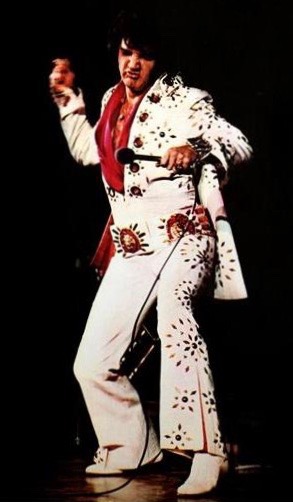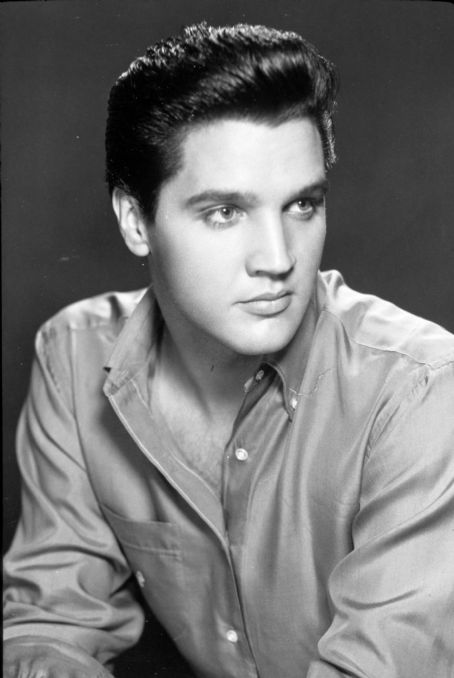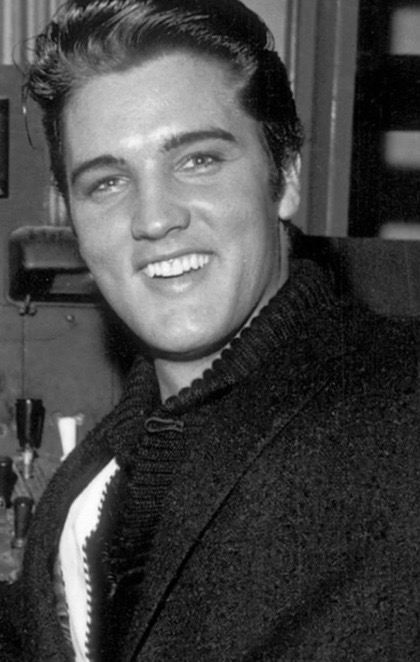Don’t Sweat the Numbers; Elvis’
Leagcy Lives On Without Them
On a recent Sunday, I was sitting at the kitchen counter reading the morning paper. As I spread the paper out, the cover of Parade magazine caught my eye. There was a picture of Mariah Carey on it, but it was a word in big red letters that drew my attention—“Elvis.” The complete headline read, “Will Mariah Carey Top Elvis?’
My first thought was, “Oh, this is going to bother some Elvis fans.” In the article about Mariah Carey inside, I found the following statement: “ … she has sold 76 million records and charted 16 No. 1 singles—just two fewer than Elvis Presley and four fewer than the Beatles. She could catch or surpass both with this [new] album.”
Now, while most of the Elvis faithful fervently insist that their man is Number 1 in all categories, they can probably live with others believing the Beatles surpass him in #1 singles. But Mariah Carey? Can’t let that happen. Since it’s too late for the Elvis myth-makers to stop her, it’s time for them to start spinning the numbers.
There’s no doubt we live in a society obsessed with making judgments based on statistics. It’s most obvious in the fields of politics and sports, but numbers have always been important in the entertainment business, as well. Any Elvis fan knows that numbers, big numbers, have always been used to support his place atop the list of greatest entertainers.
Remember a few years ago? Some publication issued a list of gold and platinum record winners. When Elvis finished down on the list, some incensed fans decided to take action. How could Elvis not be #1? They demanded a recount, and if that didn’t work, they wanted the counting redone in a different way.
But hold on. What do all these numbers mean anyway? Does Elvis’ legacy really sit on a foundation of statistics? When other singers build big numbers of their own, does that really diminish Presley’s legacy, as some fans fear?
Let’s take a look at some Elvis numbers and see what significance they really have. I found the following stats in a January 2000 of TV Guide. Of course, there have been lots of other Presley numbers thrown around, but I think I can make my point with this group.
• Records sold: More than one billion.
Wow! That’s a nice big round number. Makes you wonder where it came from. Personally, I would have more trust in it if it were more exact, like say … 1,015,201,583. Now I know they’re probably referring to world-wide sales, but think about it. A billion is a thousand million. To reach that level, Elvis would have to have sold five million copies of 200 different records. Does that sound reasonable? Not to me. Not without some explanation of how the total was determined. The point is that you can throw numbers out there, but they’re meaningless if they aren’t documented. Let’s try another one.
• Number of gold, platinum or multi-platinum albums: 63
Now that’s really impressive—63 gold albums or better! But how are such awards determined. Check out the following explanation from Wikipedia:
“Originally applied to LP records, certification is now most commonly awarded for compact disc sales. Certification is usually awarded cumulatively, and it is possible for a single album to be certified silver, gold, and platinum in turn. An album that becomes platinum twice over is said to be ‘double platinum’. Artists can also become multi-platinum sellers if they have at least two albums both going single platinum—therefore meaning that they do not have an individual album selling these amounts.”
If I read that correctly, those 63 award-winning Elvis albums could actually have been, say, 25 albums, some of which were counted two or three times. That stat just lost some of its luster. The next one is my favorite.
• Number of people who tuned into Presley’s 1973 special, Aloha From Hawaii via satellite: 1.5 billion
• Number of households tuned in to man’s first walk on the moon: 40,130,000
Even though total people and households are different stats, these numbers are obviously meant to infer that the world cared more about an Elvis concert than man walking on the moon. Again, does that pass the “reasonable” test? Also, think about this. In 1973 the world population was 3.973 billion. Does it seem likely that 38% of all people in the world watched Elvis’s concert that day? You know what this number sounds like?—a Colonel Parker number. That’s a number designed to make Elvis look good but one that has no basis in reality.
Well, you get my point. Numbers can be found, or created, to support any position a person chooses to take. I suggest, however, that Elvis Presley’s legacy should not be, and, in fact, can not be defined by numbers.
Elvis’s “legacy” is a term I use often on Elvis-History-Blog. To me it refers to what influence his life had on his generation and on those that followed. That includes his role in changing the course of popular music in the 1950s and on through the present day. It includes how his music helped change attitudes in America about race. It includes how his drawing power gave rise to the large-scale concert industry in the U.S. These and other parts of his legacy can’t be measured in numbers.
So my advice to Elvis fans is to relax and have fun with the numbers if you like. But don’t take them too seriously. And don’t feel threatened when another entertainer’s numbers are compared to Elvis’s. His legacy is well established and can’t be enhanced or diminished by numbers. — Alan Hanson (April 2008)
Go to Blog Archives 2008
Go to Home Page






